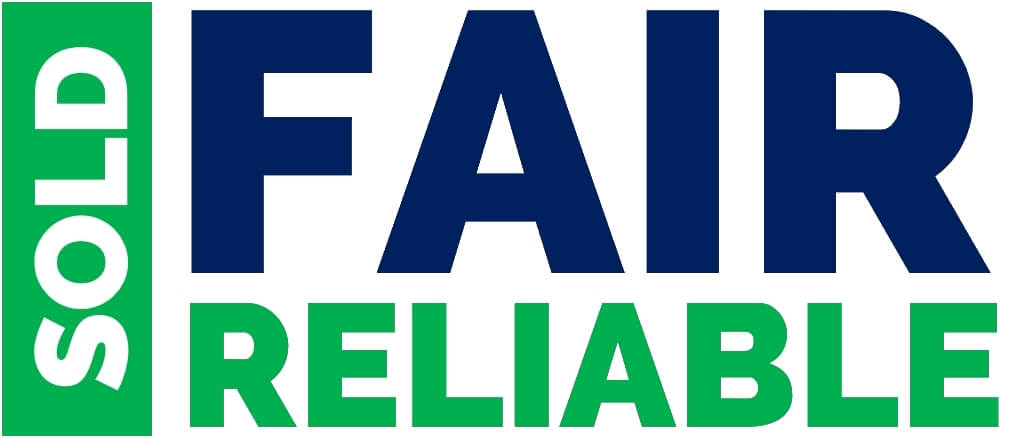Unconditional V’s Conditional Auction
One of the main reasons why property owners choose to sell by auction is to secure an unconditional legally binding sale on auction day. So why do some auctioneers offer a conditional sale?
For your peace of mind we are a member of The Property Ombudsman.
Call 0800 862 0206 for your FREE sale price estimate
Home: Auction Link » Unconditional Versus Conditional Auction
Looking to sell your home by auction? Before you sign the auctioneers terms of business, you might find this article to be a useful read!

There are two key features that set an auction sale apart from an estate agency sale, they are:
1) Bidding – competitive bidding to achieve the best sale price.
2) Binding – a legally binding sale, where the buyer exchanges contracts on auction day and cannot back out of their purchase.
🔲 What is a “binding” sale?
When we talk about a “binding sale” we mean it’s legally binding. And we are referring to property law in England & Wales, where contracts are exchanged and the buyer pays deposit exchange funds.
Unconditional auction sales are legally binding. Whereas conditional auction sales are not legally binding. This article explains why some auctioneers offer a conditional sale, and why it’s important for home sellers to check what type of auction sale they’re signing up to.
Updated by: Mark Grantham on 25th September 2022

Most traditional (1) auctioneers offer an unconditional auction sale as standard, they will only offer a conditional sale in exceptional circumstances. Conditional auction sales are more common with modern (2) auction. And this article is intended to help property sellers who are researching the suitability of a sale by modern auction. In particular whether to choose an unconditional modern auction sale, or a conditional modern auction sale.
🔲 Definition of (1) Traditional auction (2) Modern auction
Some auctioneers might use different terminology, but for the purpose of this article we refer to the difference between traditional and modern auction as follows:
(1) Traditional auction is the type of auction you see on TV (Homes Under The Hammer) where live bidding takes place within a 2 or 3 minute slot on auction day.
(2) Modern auction has an extended bidding period. Prospective buyers can bid at any time over the course of 28 days.
For more information about the differences between traditional auction and modern auction, please see our guide to selling by modern auction.
The benefits of selling by auction have been opened-up to a whole new audience of property seller thanks to modern auction. With longer bidding periods and higher reserve prices, modern auction has many of the benefits of traditional auction, without so much of the risk.
However, it’s important for property sellers to be aware that not all types of modern auction are the same.
One of the reasons we’ve wanted to write this article is because of the feedback we’ve received from property sellers who’ve found the type of auction they’d signed up to, wasn’t what they expected.
Broadly speaking there are two types of modern auction:
1) Conditional modern auction
2) Unconditional modern auction
Some of the concerning comments we hear are from property sellers who have signed up to a conditional modern auction sale, without realising the buyer was allowed to back out of their purchase.
Whilst we think a conditional auction sale has its place, we believe it’s important that property sellers understand the rules are different from what “auction” is commonly understood to mean.
What’s the issue with conditional auction?
Conditional auction sales are not legally binding. In fact, they’re not all that different from accepting an offer through an estate agent; the offer is subject to contract, subject to legal enquiries, and subject to the buyer changing their mind.
Although not legally binding, there is some financial commitment from the buyer. The successful bidder at conditional modern auction does pay a reservation fee to secure/reserve the property. The reservation fee paid by the buyer gives them the exclusive right to proceed with the purchase (or not) for a period of 28 (or sometimes 56) days. During that period the buyer can carry out their survey and make legal enquiries before they exchange contracts. If the buyer does not exchange contracts, they lose their reservation fee. Whether the reservation fee is paid to the seller, or kept by the auctioneer will vary from auctioneer to auctioneer.
What about unconditional modern auction?
The rules of an unconditional modern auction sale are more like that of traditional auction. Where “sold” really does mean sold. The sale is not conditional upon survey or legal enquiries. The winning bidders offer is unconditional; they legally exchange contracts and pay a non-refundable deposit. In the very unlikely event that the buyer breaches their contract to purchase the property, the deposit will be paid to the seller. And if the seller chooses to, they can sue the buyer for breach of contract.
Unconditional auction sales are “exchange ready”. That means both the buyer and the seller are in a position to exchange contracts on auction day.
Whilst we see there is a place for conditional auction sales. We think an unconditional auction sale is what most people are looking for when they choose to sell by auction.
Notes relating to costs and dates stated in the above table:
Costs: Auction commission rates and upfront fees stated above are exclusive of VAT. Commission rates vary depending on geographic location and property value – traditional auctioneers may reduce their fee for higher value properties.
Flexible auction date: Traditional auction dates are fixed. Modern auction dates can be changed; the auction end date can be brought forward or extended depending on the level of interest in a property.
As a general rule, we recommend selling by unconditional auction (either unconditional traditional auction or unconditional modern auction). But there are some situations where a conditional auction sale can be useful.
Where the sale is conditional upon a management company approving the buyer. For example, when selling a retirement flat or park home, the management company might need to check that the buyer meets certain criteria (e.g. age) to purchase the property.
Where the sale is conditional upon receiving grant of probate. Although it’s usually better to wait to receive grant of probate before offering a property for sale. In some situations an auctioneer will offer the property for sale, and exchange of contracts will be conditional upon receiving grant of probate.
Where the auctioneer has not been able to find a buyer prepared to commit to an unconditional sale, they might suggest a conditional sale. This sometimes happens for high value properties; where a buyer might need more time to arrange a mortgage, the auctioneer will ask the seller if they are prepared to sell on a conditional basis and allow the buyer some time to arrange their finances. The “condition” will usually be defined e.g. conditional upon mortgage approval. Rather than conditional upon any reason. This means the buyer cannot wriggle out of their purchase, just because they’ve changed their mind.
Why sell by auction?
✔ Sell to the highest bidder
✔ Sales don’t fall through
✔ Property “sold as seen”
Selling by auction makes a refreshing change, there are no protracted negotiations or sales falling through. With an unconditional auction sale the property is sold to the highest bidder and the sale is legally binding. There is no opportunity for the buyer to reduce their offer or back out of the sale.
Guide to selling a house by auction
Explains the stages involved in an auction sale. With information about auction sale costs, timescales and the process for selling at auction.
Carry out improvements before selling?
When selling a property in need of improvement, should I spend money on refurbishment works? Or leave the property as is, and let the new owner take care of improvements?
Poor condition property: Auction VS Estate Agent
The private treaty method of sale isn’t suited to some types of property – it’s inefficient and potentially open to abuse.
Selling a house in poor condition
The rules of an auction sale mean that buyers must compete to purchase a property. And the highest bidders offer is legally binding – there is no opportunity for them to reduce their offer.
Check before you sign
Before committing to sell your property at auction, check to see if the contract is for an unconditional sale or a conditional sale.










